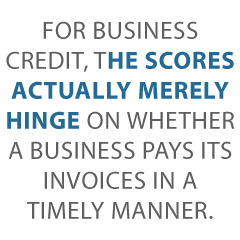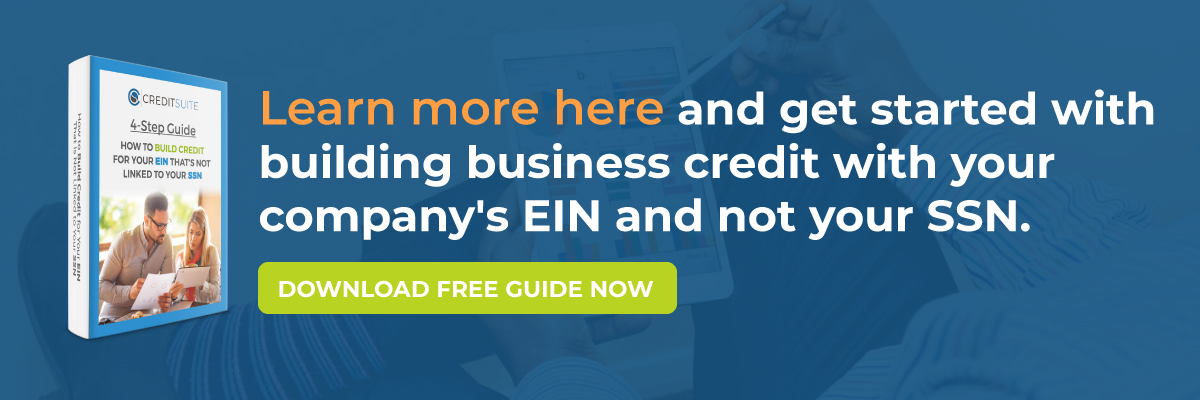- Connect With Us!
- (877) 600-2487
- info@creditsuite.com
How to Improve Your Business Credit Rating
Published By Janet Gershen-Siegel at June 22nd, 2018
Are you looking for how to improve your business credit rating? We can help make your business more fundable. Becoming and staying fundable will directly improve your business credit scores and ratings.
We Can Show You How to Improve Your Business Credit Rating
Do you know how to improve your business credit rating? But first – does your business have a good business credit rating, or any rating at all?
Does your business have an awesome business credit rating? Or it is any good at all?
So you are presently in business, and you are striving to keep on top of your commercial credit scores.
Or perhaps you aren’t, and have determined now is a good time to start. Or perhaps your company is relatively new, and this is the first time you’re doing this.
Despite your circumstance, you have most likely asked this question at least once. Are my credit ratings any good?
Let’s take a look at the three company credit reporting bureaus. And we’ll solve this mystery once and for all.
The Advantages of Improving Your Business Credit Rating
Due to the fact that small business credit is independent from consumer, it helps to protect a small business owner’s personal assets, in the event of litigation or business insolvency.
Also, with two distinct credit scores, a business owner can get two separate cards from the same vendor. This effectively doubles purchasing power.
Another benefit is that even startup ventures can do this. Heading to a bank for a business loan can be a recipe for frustration. But building company credit, when done the right way, is a plan for success.
Personal credit scores rely on payments but also various other components like credit utilization percentages.
But for business credit, the scores actually merely hinge on whether a business pays its invoices in a timely manner.
Learn more here and get started with building business credit with your company’s EIN and not your SSN.
Your Small Business’s Experian Company Credit Score
Experian’s Credit Score report includes things like a commercial credit score. so this is along with other facts, such as account histories, payment trends, and public records. Experian commercial credit scores run the gamut from 1 to 100.
In contrast to Dun & Bradstreet’s PAYDEX score and Equifax’s payment index, Experian takes into account various factors, and not simply payment histories.
Experian Scoring Factors
The details which go into the calculation include:
- Lines of credit your small business has an application for in the prior nine months
- New lines of credit you’ve begun in the last six months
- Your business’s years in business
- Payment history in the last twelve months
More Experian Scoring Factors
- Lines of credit in use in the last six months
- Collections totals in the prior seven years
- Percent of available credit in use
- Number of payments one – 30 days late, or 31 days or more overdue
- Amount of non-net-30 lines of credit (that means the payment is due in less or greater than 30 days).
Generally, even companies that use credit responsibly will get a medium-low risk rating. As you might expect, older small businesses will have an easier time attaining a low-risk rating.
An awesome Experian score for your business is 76-100.
Improve Your Business Credit Rating with Experian
So, how do you make this score better? As with all business credit scores, Experian weighs payment history rather heavily. However, they are also interested in the number of lines of credit in use. Furthermore, they are scoring on how many lines of credit your business has an application in for.
Therefore, it pays to get more lines of credit – but then wait for your Experian score to rebound in about three-quarters of a year.
And, as always, use your credit responsibly.
Your Small Business’s PAYDEX Score from Dun & Bradstreet
Dun & Bradstreet’s PAYDEX score runs from 0 to 100. A PAYDEX score has a basis in payment data which is on report to the CRA. Or it is on report to data-gathering firms partnering with the agency.
D & B uses this data, along with a credit score and financial stress score, so as to advise just how much credit a credit issuer should extend to your business.
Getting a PAYDEX Score
So as to generate a PAYDEX score, you must file for a D-U-N-S number by using Dun & Bradstreet’s web site. The number is free of charge. In addition the CRA will need to have records of your payments with four or more vendors.
Your small business’s PAYDEX score indicates if your payments are normally made punctually or ahead of schedule. As you may expect, a greater number is better.
PAYDEX Score Details
The scores work out as follows:
- 80-100: A low risk of late payments
- 50-79: A medium risk of late payments
- 49: A high risk of late payments
Business Credit Score
Your business’s credit rating ranges from 1 to 5. 1 is the best score. This matches your company with other businesses with comparable payment histories. The score shows how often those businesses tend to pay without delay.
This data can help credit issuers to comprehend your small business’s standing.
But it does not really demonstrate all of the payment information from your company.
Financial Stress Score
The financial stress score also runs from 1 to 5. This score matches your small business with other businesses sharing similar financial and business characteristics.
These similarities are in areas like size or amount of time in business. This score shows how frequently those small businesses tend to pay on time. As before, 1 is the best score. This rating is a broader evaluation of the business landscape, versus an analysis of your company’s authentic payment history.
An awesome PAYDEX score for your company is 80-100.
Improve Your Business Credit Rating with Dun & Bradstreet (PAYDEX)
So, how do you make this particular score better? Right now, it’s all about your payment history. But watch out for what D&B sees as financial stressors, such as taking on a great deal of debt all at once.
Dun & Bradstreet is looking at all the ways your business can possibly fail. And of course you may not be able to prevent each and every single one of them. In particular, D&B is looking for proof that you sought legal relief from your creditors, or you filed for bankruptcy. If either situation applies, then it will be exceptionally hard to raise your Dun & Bradstreet business credit rating.
Learn more here and get started with building business credit with your company’s EIN and not your SSN.
Your Business’s Equifax Score
Equifax displays three distinct business determinations on its commercial credit reports. These are the Equifax payment index, your business’s credit risk score, and its business failure score.
Equifax Payment Index
Much like the PAYDEX score, Equifax’s payment index, which has its measurement on a scale of 100, demonstrates how many of your company’s payments were made promptly. These include both data from credit issuers and vendors.
But it’s not meant to forecast future behavior. That is what the other two scores are for.
Equifax Credit Risk Score
Equifax’s credit risk score assesses how likely it is your business will become severely delinquent on payments. Scores range from 101 to 992, and they assess:
- Available credit limit on revolving credit accounts, e. g. credit cards
- Your business size
- Evidence of any non-financial transactions (e. g. merchant invoices) which are unpaid or were on charge off for two or more billing cycles
- Length of time since the opening of the earliest financial account
Equifax Business Failure Score
Finally, Equifax’s business failure score looks at the likelihood of your small business shutting down. It ranges from 1,000 to 1,600, reviewing these elements:
- Total balance to total current credit limit average utilization in the previous three months
- The length of time since the opening of the oldest financial account
- Your company’s worst payment status on all trades in the prior 24 months.
- Confirmation of any non-financial transactions (e. g. vendor invoices) which are overdue or have been on charge off for two or more billing cycles.
Equifax Scoring Analysis
For the credit risk and the business failure scores, a rating of 0 means bankruptcy.
An awesome Equifax score for your small business is as follows:
- Payment Index 0-10
- Credit Risk score 892-992
- Business Failure score 1400-1600
Improve Your Business Credit Rating with Equifax
So, how do you make this score better? Apart from payment history, Equifax also cares about your credit utilization rate. Hence you should try to keep this at 30% or less. Ideally, you should be aiming for more like 25% or less.
Therefore, if you get more lines of credit (see the tip about Experian), then you can reduce your credit utilization right. But you would still be able to borrow the same amount of cash on credit.
Also, similar to Dun & Bradstreet, Equifax looks at the chances of your small business going belly up. One of their metrics is the number of vendor invoices and the like which are overdue or have been on charge off for two or more billing cycles.
In practical terms, this means that your business will need to get serious when it comes to collecting overdue payments from your customers. One great way to do this is via invoice factoring. Let a factoring company handle the headaches of collections, while you collect fast cash. So let them be the bad guy!
Takeaways for How to Improve Your Business Credit Rating
Keep your scores in line and good things will happen.
Learn more here and get started with building business credit with your company’s EIN and not your SSN.
And improve your business credit rating.

 " class="attachment-blog-single size-blog-single wp-post-image" alt="Get Business Credit Cards for New Businesses Credit Suite-Business Line of Credit Decoded" title="Get Business Credit Cards for New Businesses">>
" class="attachment-blog-single size-blog-single wp-post-image" alt="Get Business Credit Cards for New Businesses Credit Suite-Business Line of Credit Decoded" title="Get Business Credit Cards for New Businesses">>